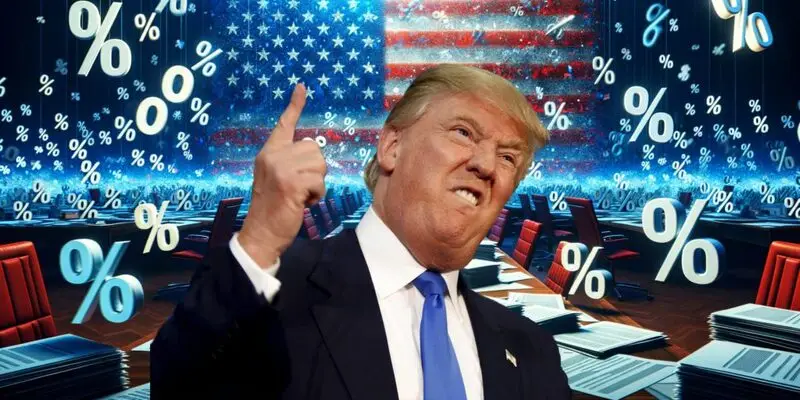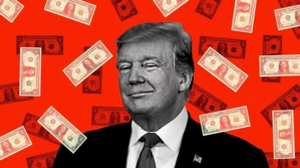Donald Trump, the president-elect of the United States, is tightening efforts to curb de-dollarization. The Trump regime is stringent towards protecting the US dollar’s prestige and is now delivering warnings to nations that have been working in tandem to ditch the US dollar. As Trump issues a call to protect the USD, his strict stance has also been comprehended by analysts as a narrative that may backfire, pushing nations further to find an alternative currency instead of embracing the US dollar. Will alliances like ASEAN and BRICS succumb to this pressuring development?
Also Read: Shiba Inu: New Forecast Claims SHIB Hitting $0.00007, Here’s When?
Trump Warns Nations Ditching The US Dollar

Trump, in his latest tweet, has issued a serious warning against nations that are building dubious narratives against the US dollar. Trump shared how he will be imposing 100% tariffs on BRICS nations that are building a new currency system to challenge the USD, putting a stop to the rising de-dollarization drives.
“The idea that the BRICS countries are trying to move away from the dollar while we stand by and watch is OVER. We require a commitment from these countries that they will neither create a new BRICS currency nor back any other currency to replace the mighty U.S. dollar, or they will face 100% tariffs and should expect to say goodbye to selling into the wonderful U.S. economy. They can go find another “sucker!” There is no chance that the BRICS will replace the U.S. dollar in international trade, and any country that tries should wave goodbye to America.”
In one of his earlier interviews, the president-elect had vowed to levy tariffs on nations that have been moving away from the dollar.
In recent years, there has been a rise in the de-dollarization narrative, with nations actively voicing their opinions about ditching the US dollar. Alliances like BRICS and ASEAN have particularly been at the forefront of this change, shifting the focus towards local currency usage in trade instead of the dollar, a development intended to erode the US dollar’s status as the reserve currency.
Also Read: VeChain Hits 2-Year High, Outperforms Bitcoin, Solana: $0.1 Next?
Why ASEAN Countries May Cut Ties With The USD?
The 42nd ASEAN summit in Labuan Bajo in Indonesia played a crucial role in solidifying ASEAN’s stance on currencies. The alliance had decided to “push for better regional connectivity” by using the local currency. This development was later dubbed as an effort of the bloc to move away from the dollar dominion.
“At the 42nd ASEAN Summit, held in Labuan Bajo, Indonesia. ASEAN members signed an agreement to push for better regional payment connectivity and the use of local currency transactions (LCT). The move is seen as the bloc’s strategy to transition away from established currencies used for trade. Such as the US dollar.”
The bloc cited reasons such as the Federal Reserve’s aggressive rate cut hikes, alongside the weaponization of the dollar, as major reasons for this change.
In addition to this, several analysts agree on how the dollar protection plan may push such nations further away.
Rodrigo Catril, a strategist at National Australia Bank Ltd. in Sydney, shared how this development may push BRICS to ditch the dollar.
“The dollar remains dominant for several reasons. The USD is the most liquid currency in the world. It trades freely, and it is also the lending currency of the world. If Trump increases the pressure on BRICS, it may well accelerate a move away from the dollar.”
Brad Setser, a senior fellow at the Council on Foreign Relations and a former US Treasury official, shared a similar opinion on Trump-BRICS development.
“It isn’t a good look… It indirectly elevates the stature of a non-threat and suggests a lack of confidence in the dollar,” he said.
If this phenomenon catches on, these ten nations may devise plans to actively ditch the US dollar or opt for an alternative currency system.
- Brunei
- Cambodia
- Indonesia
- Laos
- Malaysia
- Myanmar
- Philippines
- Singapore
- Thailand
- Vietnam
Also Read: Chainlink Doubles Investor’s Money: Should You Invest in LINK Now?






